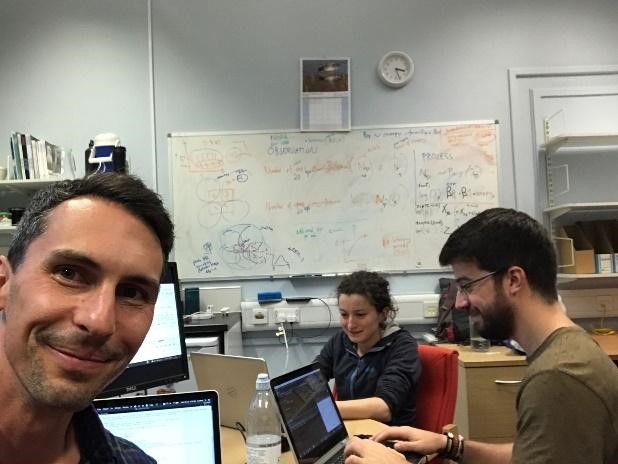Tropibio team attended an integrated modelling workshop in Glasgow
News

Tropibio Researcher Luke Powell and Diogo Ferreira (Tropibio PhD student) attended an integrated modelling workshop in Glasgow in October 2021
The workshop was entitled the "Bayesian integrated modelling workshop” and took place in Glasgow, from 27-29 Oct, 2021 at the University of Glasgow. The participants used Bayesian integrated modelling to pull together data from different methods for monitoring animals (e.g., camera traps and acoustic monitors), and then they "integrated" these data to get a much more precise count of how many animals are present. Luke aims to use this technique for some of the species that the Tropibio team will be monitoring in Lusophone Africa.
Precise and accurate ("robust”) estimates of abundance are extremely important for conservation ecology. But monitoring for animals often takes place using several methods at once, so integrating these to datasets can help with the robustness of estimates. For example, the global population of the endemic, endangered Principe Thrush is thought to be somewhere between 40 and 400 individuals, with (not very precise) estimates being calculated independently from point counts and transects. By integrating these two data sources to estimate abundance (i.e., N: population size), we can obtain a much more estimate of the population size of Principe Thrush or other similar species of conservation concern. The technique can also be used in food web models (e.g., in cocoa farms, from diet metabarcoding), where robust estimates of abundance are needed for models to run.
